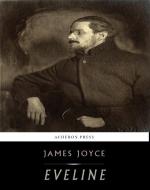|
This section contains 670 words (approx. 2 pages at 400 words per page) |

|
Epiphany
One of Joyce's stylistic trademarks is the use of a character's brief realization of truth and clarity, usually signaling a new direction and understanding of the world. Eveline experiences an "epiphany" after she remembers her mother's dying words "Derevaun Seraun" and makes the ecstatic resolution to escape to a new life, although she is unable to follow a new course when the time comes.
The word "epiphany" comes from the Greek for "manifestation," usually of divine power, and Joyce was very cognizant both of this root and the connotation of the January-sixth Christian festival of the Epiphany, which commemorates Jesus' baptism, the visit of the Wise Men, and the miracle at Cana. Each of these events is, for Christians, an instance of a manifestation of God's power, and the festival is second only to Easter in theological importance. In A Portrait of the Artist as a Young Man...
|
This section contains 670 words (approx. 2 pages at 400 words per page) |

|




